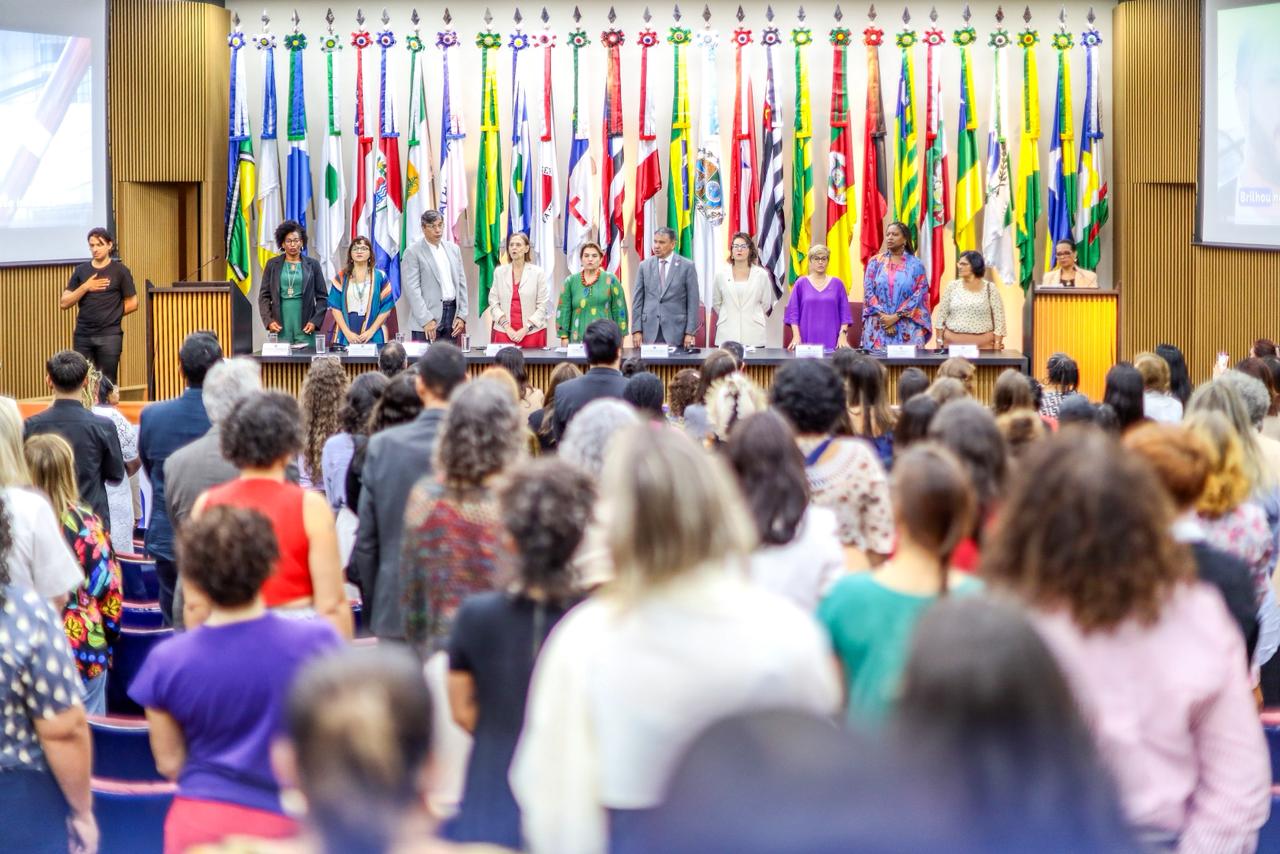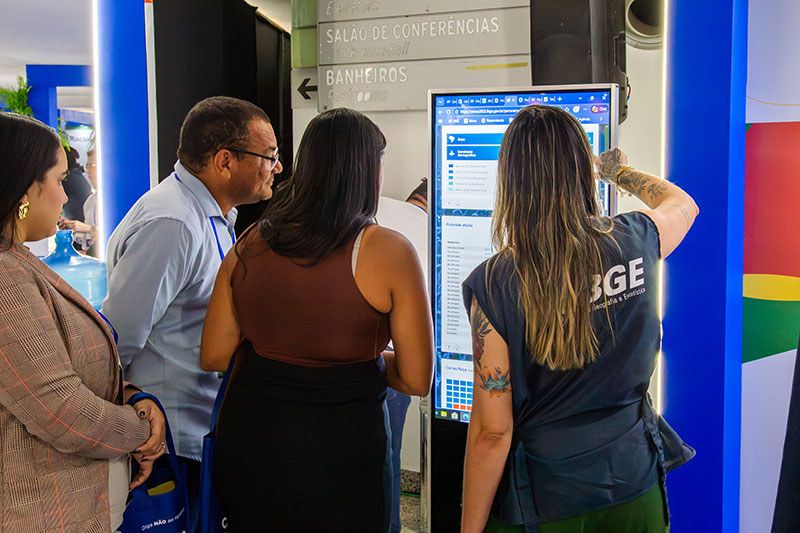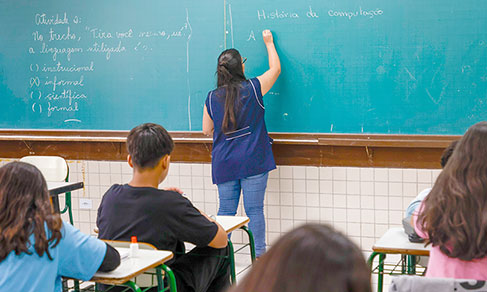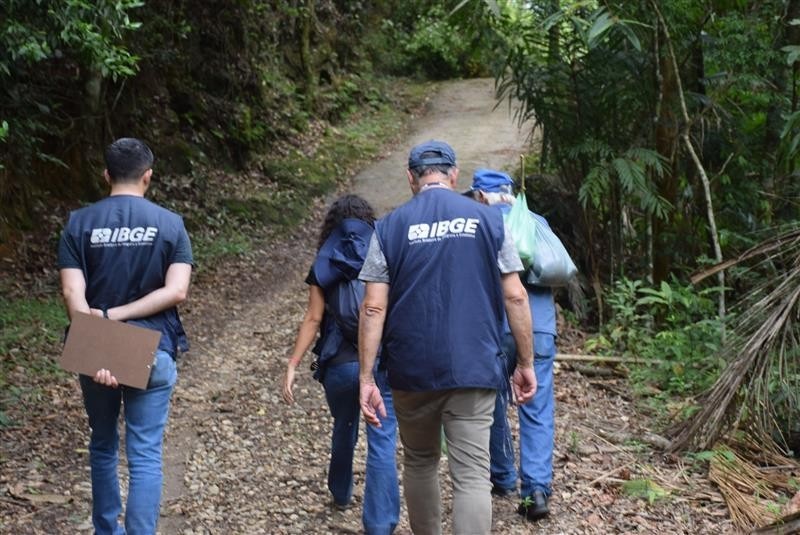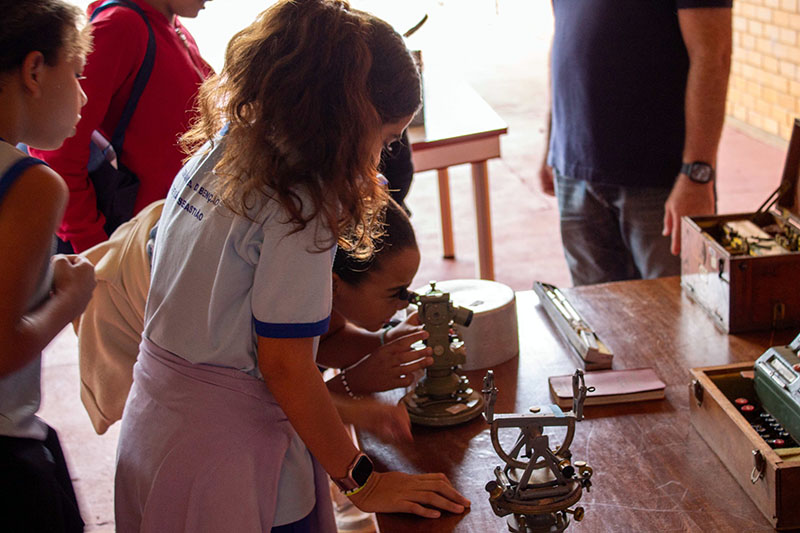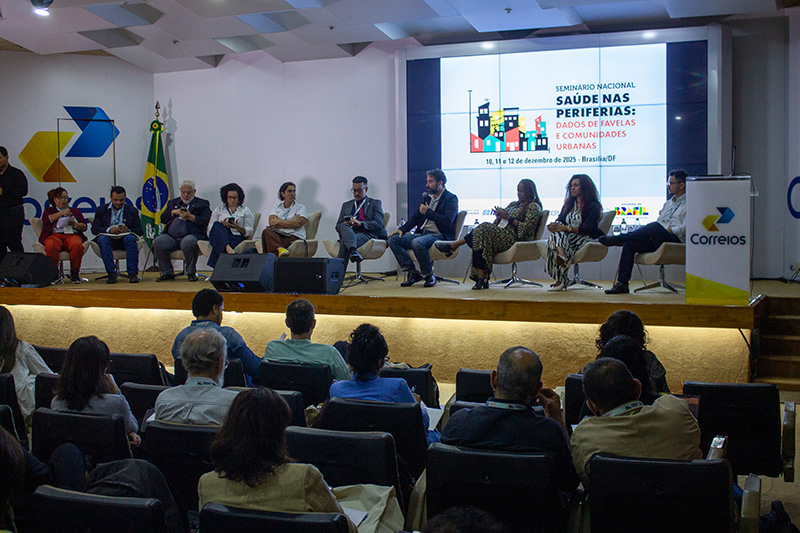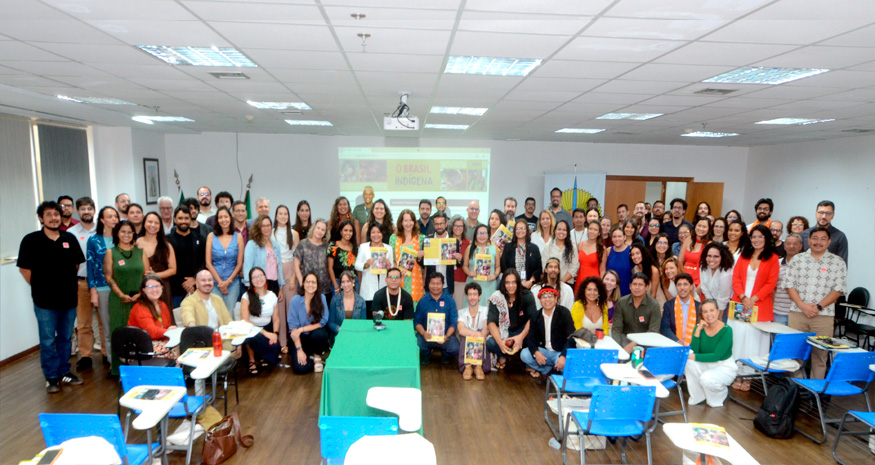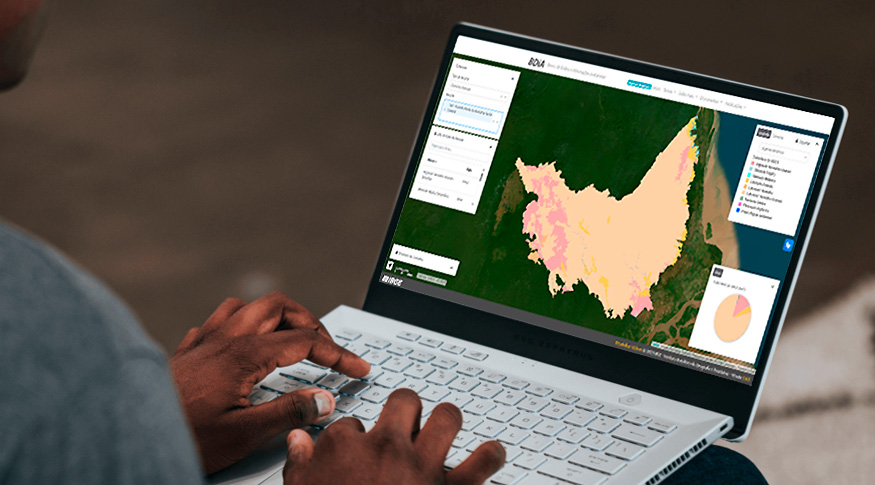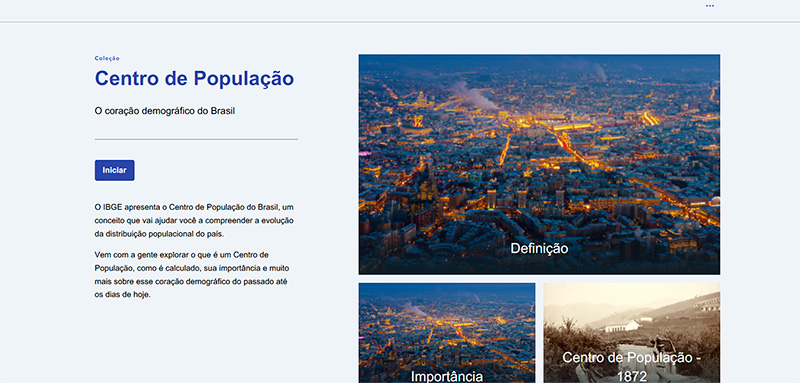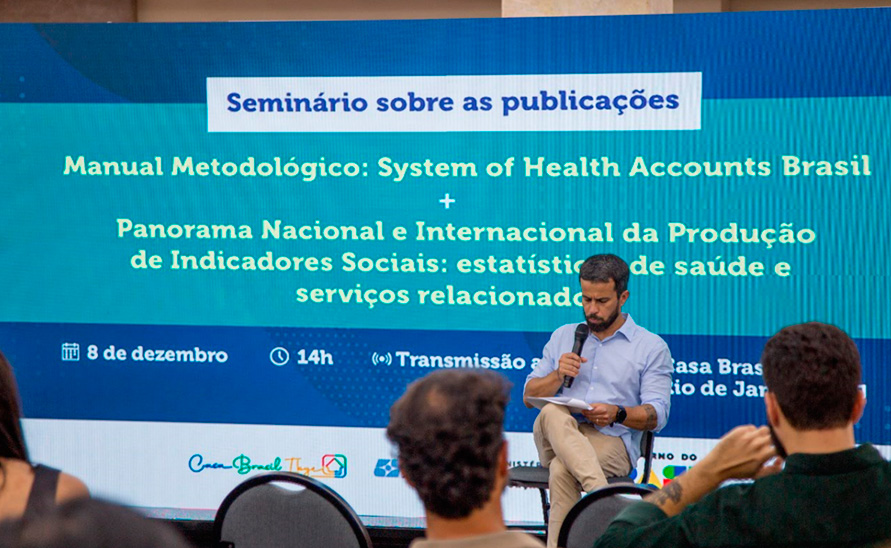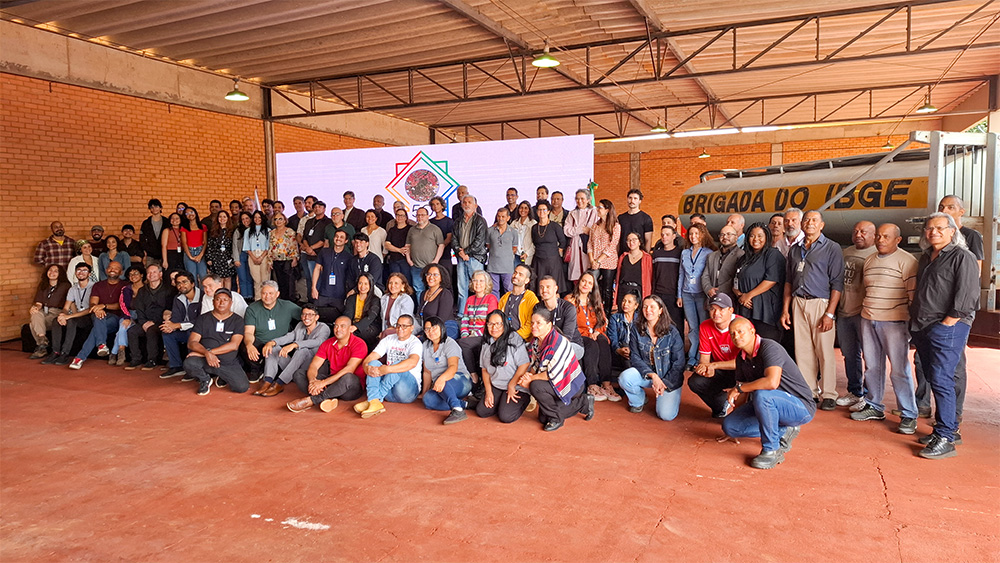International Relations Magazine
First edition highlights reference centers in digital data collection in Africa
April 04, 2018 09h00 AM | Last Updated: June 05, 2018 11h01 AM
Aiming at improving and disseminating its participation in the global scenario, the IBGE launches today the first edition of the International Relations in the News Magazine. The debut edition shows the major international activities of the institution in the second semester of 2017, as well as an interview with President Roberto Olinto Ramos.
Among the stories, the training provided by IBGE servants in Cape Verde and Senegal, one of the final steps to launch the reference centers in digital data collection in Africa, stands out. The complete story can be read below.
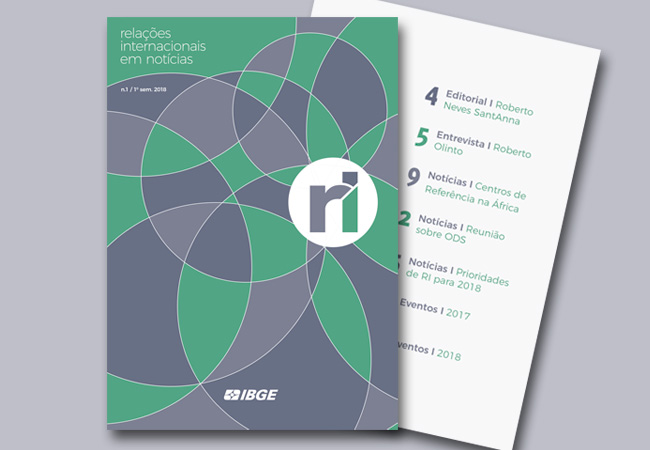
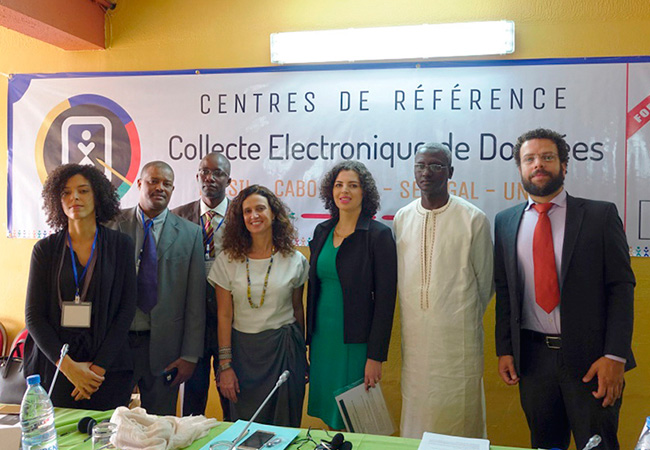



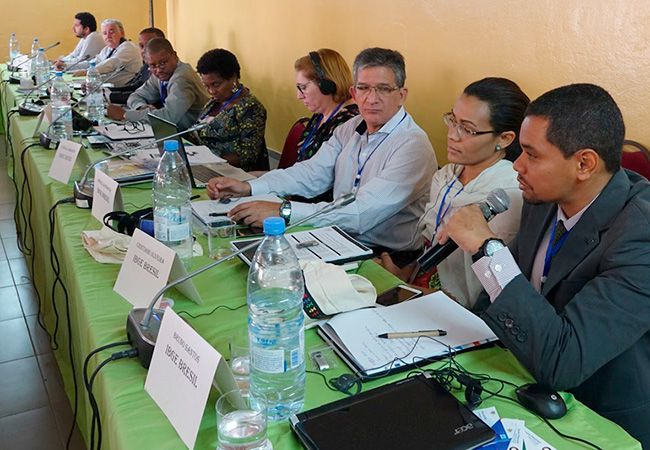
Reference Centers share IBGE knowledge
More than innovating, a reference institution should be willing to share the knowledge acquired from successful experiences. With this this goal in mind, the IBGE trained the national statistical offices of Senegal and Cape Verde between November and December 2017 in Africa. The training aimed at disseminating the electronic data collection carried out in the 2010 Population Census, recognized as a model by the United Nations, throughout the African countries.
The cooperation with African countries is an example of the key role that the IBGE has been increasingly performing in the international geostatistical scenario. The training aimed at developing two Reference Centers in Census with Electronic Data Collection and providing Senegal and Cape Verde with the autonomy to train other African countries, thus disseminating the knowledge provided by the Brazilian institution throughout the continent.
Held in the cities of Saly (Senegal) and Praia (Cape Verde), the training sessions took two weeks each, involving 25 technicians from each country and 11 IBGE servants. Besides the Brazilian and African institutions, the initiative also involved the Brazilian Cooperation Agency - ABC and the United Nations Population Fund - UNFPA Brazil. More than a training, this period provided an interchange among the statistical offices of the three countries.
"We don´t need to teach anyone how to make a census, this is not the focus. They know how to train, to make a census. Our focus is on pointing out the differences for the electronic data collection. It is not the case of providing the enumerators with Personal Digital Assistants - PDAs and start working, because there are previous steps", explains Cynthia Damasceno, manager of training at the IBGE´s Coordination of Census Operation, who participated in the training.
"We had more of a chat than just teaching. There is a huge experience and they want to know exactly what we do. We still fear to pass it on to other countries. But there isn´t a single way, since each country has its own structure", explains Miguel Ângelo Montenegro, an IBGE analyst also present in the training.
The training dealt with subjects like staff training, census mapping, technological infrastructure, questionnaires and supervision towards the electronic data collection, as well as data dissemination and society awareness. Both countries had already carried out censuses with digital equipment, but now they are prepared to train other countries. However, this wasn´t the last mission of the project.
"They have already pointed out some requirements in relation to the transfer of this knowledge to other African countries. They raised the need to prepare analysis instruments of the countries that will receive this training in the future", explains Miguel Ângelo. A meeting was held in Praia (Cape Verde) in February 2017 to deal with this issue.
The reference role of the IBGE in the electronic data collection was reached in 2010, when Brazil carried out a successful Population Census in digital format, using no paper questionnaires. The experience in a continental-sized country then with a population of 190.7 million persons caused a stir in statistical offices still facing difficulties in this transition, like that of Cape Verde.
"We were the first, let´s say, big country to carry out a completely digital census. When we were still preparing it in 2010, we were requested to help Cape Verde make their own census. The president at the time, Eduardo Pereira Nunes, said: 'we will help, but with the new technology', that we already used in the Census of Agriculture in 2007. We virtually did the census in Cape Verde", tells Maria Vilma Salles Garcia, IBGE coordinator of Census Operation.
The cooperation of the IBGE with Cape Verde was just a single case in this area. The increasing demand for training in electronic data collection was the main reason for the creation of the Reference Center in Africa in 2016.
"The technical cooperation of the IBGE at international level increases after the 2010 Census, mainly due to the new technology of electronic data collection, as well as to the transmission and control of the fieldwork, compensation and mapping. The United Nations recognizes this as an activity they call of Data Revolution, which is not only made with the data on their own, but also with the related processes", explains Roberto Sant´Anna, IBGE´s Adviser of International Relations, who highlights the importance of partners like the ABC and UNFPA.
"The ABC aims at the international cooperation towards the South-South axis. It is with us in every cooperation of this type. What we see is that the Brazilian cooperation has been trilateral, since it is formed by the involved countries and an institution that acts like a partner. In the case of the censuses, our partner is UNFPA, like in the reference centers", highlights Sant´Anna.
Counting on two countries prepared to disseminate the knowledge in Africa in different languages, the IBGE is able to share its techniques in a faster and efficient way, even not directly involved.
"The South-South cooperation aims at not maintaining dependencies. It aims at training, so the knowledge can flow freely. We don´t want to create dependencies, so every time they need any information they need the IBGE. The idea is to train multiplication agents. And, of course, bring experiences from there too", concludes Sant´Anna.



